Language: Italian
Versione italiana da Pink Floyd Sound
Language: Spanish
Versione spagnola di René Sandino Monterrey
THE WALL en Español
THE WALL en Español
OTRO LADRILLO EN EL MURO
Papi ha volado a través del océano
dejando solamente un recuerdo:
una simple foto en el álbum familiar.
Papi, ¿ qué más dejaste para mí ?
Papi, ¿ qué dejaste detrás para mí ?
Después de todo fue solamente un ladrillo en el muro.
Después de todo fue solamente los ladrillos en el muro.
Papi ha volado a través del océano
dejando solamente un recuerdo:
una simple foto en el álbum familiar.
Papi, ¿ qué más dejaste para mí ?
Papi, ¿ qué dejaste detrás para mí ?
Después de todo fue solamente un ladrillo en el muro.
Después de todo fue solamente los ladrillos en el muro.
Language: Bulgarian
ТУХЛА В СТЕНАТА - 1
Татко ми далеч замина,
Имам спомен- като млад
Някъде в албума сниман.
Татко бе, какво ми завеща?
А бе, татко, кво ми завеща?
Май че само една тухла в стена.
Татко ми далеч замина,
Имам спомен- като млад
Някъде в албума сниман.
Татко бе, какво ми завеща?
А бе, татко, кво ми завеща?
Май че само една тухла в стена.
Contributed by Riccardo Venturi - 2005/11/11 - 00:10
MORE ON "THE WALL" ALBUM
Pink Floyd's the Wall is arguably one of the most intriguing and imaginative albums in the history of rock music. Since its release in 1979, and the subsequent movie of 1982, the Wall has become synonymous with, if not the very definition of, the term "concept album." Aureally explosive on record and visually explosive on the screen, the Wall traces the life of the fictional protagoinst, Pink Floyd, from his boyhood days in war-torn England to his self-imposed isolation as a world-renowned rock star, leading to a climax that is as questionably cathartic as it is destructive.
From the outset, Pink's life revolves around an abyss of loss and isolation. Born to a war-ravaged nation that takes his father's life in the name of "duty," and an overprotective mother who lavishes equal measures of her love and phobias onto her son, Pink chooses to build a mental wall between himself and the rest of the world so that he can live in a constant, alienated equilibrium free from life's physical and emotional troubles. Every incident that causes Pink pain is yet another brick in his ever-growing wall: a fatherless childhood, a domineering mother, a country whose king signs his father's death certificate with a rubber stamp, the superficiality of stardom, an estranged marriage, even the very drugs he turns to in order to find release. As his wall nears completion, each brick fruther closing him off from the rest of the world, Pink spirals into a void of insanity, cementing in place the final brick in the wall. Yet the minute it is complete, Pink begins to realize the adverse effects of total mental isolation, helplessly watching as his fragmented psyche coalesces into the very dictatorial persona that antagonized the world during World War II, scarred his nation, killed his father, and thereby defiled his own life from birth. Culminating in a mental trial as theatrically rich as the greatest stage shows, the story ends with a message that is as enigmatic and circular as the rest of Pink's life. Whether it is ultimately viewed as a cynical story about the futility of life, or a hopeful journey of metaphorical death and rebirth, the Wall is certainly a musical milestone worthy of the title "art."
As with most art, Pink Floyd's concept album is a combination of imagination and the author's personal life. The album's germinated during the band's 1977 "Animals" tour when frontman Roger Waters, growing disillusioned with stardom and the godlike status that fans grant to simple rock stars, became disenchanted with the seemingly mindless audience and spit in the face of a concert-goer. Drawing on these feelings of adult alienation as well as the those springing from the loss of his own father during World War II, Waters began to flesh out the fictional character of Pink. The band's first frontman, Syd Barret, and the wild stories surrounding his drugged-out escapades and subsequent withdrawal from the world provided Waters with further inspiration for the moody rock-star Pink. The contributions of bandmates David Gilmour, Nick Mason, and Richard Wright, provided the final brush strokes for Pink, a contemporary anti-hero, a modern everyman struggling to find, or arguably lose, self and meaning in a century fragmented by war.
Pink Floyd's the Wall is arguably one of the most intriguing and imaginative albums in the history of rock music. Since its release in 1979, and the subsequent movie of 1982, the Wall has become synonymous with, if not the very definition of, the term "concept album." Aureally explosive on record and visually explosive on the screen, the Wall traces the life of the fictional protagoinst, Pink Floyd, from his boyhood days in war-torn England to his self-imposed isolation as a world-renowned rock star, leading to a climax that is as questionably cathartic as it is destructive.
From the outset, Pink's life revolves around an abyss of loss and isolation. Born to a war-ravaged nation that takes his father's life in the name of "duty," and an overprotective mother who lavishes equal measures of her love and phobias onto her son, Pink chooses to build a mental wall between himself and the rest of the world so that he can live in a constant, alienated equilibrium free from life's physical and emotional troubles. Every incident that causes Pink pain is yet another brick in his ever-growing wall: a fatherless childhood, a domineering mother, a country whose king signs his father's death certificate with a rubber stamp, the superficiality of stardom, an estranged marriage, even the very drugs he turns to in order to find release. As his wall nears completion, each brick fruther closing him off from the rest of the world, Pink spirals into a void of insanity, cementing in place the final brick in the wall. Yet the minute it is complete, Pink begins to realize the adverse effects of total mental isolation, helplessly watching as his fragmented psyche coalesces into the very dictatorial persona that antagonized the world during World War II, scarred his nation, killed his father, and thereby defiled his own life from birth. Culminating in a mental trial as theatrically rich as the greatest stage shows, the story ends with a message that is as enigmatic and circular as the rest of Pink's life. Whether it is ultimately viewed as a cynical story about the futility of life, or a hopeful journey of metaphorical death and rebirth, the Wall is certainly a musical milestone worthy of the title "art."
As with most art, Pink Floyd's concept album is a combination of imagination and the author's personal life. The album's germinated during the band's 1977 "Animals" tour when frontman Roger Waters, growing disillusioned with stardom and the godlike status that fans grant to simple rock stars, became disenchanted with the seemingly mindless audience and spit in the face of a concert-goer. Drawing on these feelings of adult alienation as well as the those springing from the loss of his own father during World War II, Waters began to flesh out the fictional character of Pink. The band's first frontman, Syd Barret, and the wild stories surrounding his drugged-out escapades and subsequent withdrawal from the world provided Waters with further inspiration for the moody rock-star Pink. The contributions of bandmates David Gilmour, Nick Mason, and Richard Wright, provided the final brush strokes for Pink, a contemporary anti-hero, a modern everyman struggling to find, or arguably lose, self and meaning in a century fragmented by war.
Durante il festival Lollapalooza 2007, tenuto credo agli inizi di agosto, i Pearl Jam hanno inserito un brano di "Another brick in the wall" alla fine di "Daughter" e Vedder ha cambiato due strofe: al posto di"Ehy, teacher, leave those kids alone" ha cantato "George Bush, leave this world alone" e "George Bush, find yourself another home" ("George Bush, lascia in pace questo mondo" e "George Bush, trovati un'altra casa").
Il brano è stato censurato da AT&T che lo trasmetteva online, ed è successo un macello, tanto che il provider ha dovuto chiedere scusa.
Vedi questo articolo su "La Stampa".
Il brano censurato è comunque visibile su YouTube e in questo blog
Il brano è stato censurato da AT&T che lo trasmetteva online, ed è successo un macello, tanto che il provider ha dovuto chiedere scusa.
Vedi questo articolo su "La Stampa".
Il brano censurato è comunque visibile su YouTube e in questo blog
Maria Cristina - 2007/9/5 - 11:03
Sulla censura a Vedder, altro video daYouTube , caricato credo dagli stessi Pearl Jam, con il "ritaglio" censurato e quello originale (1 minuto e mezzo circa).
Molto bella anche la risposta dei PJ, che parte dall'episodio della censura per arrivare alla neutralità della rete, sul loro sito
Molto bella anche la risposta dei PJ, che parte dall'episodio della censura per arrivare alla neutralità della rete, sul loro sito
Maria Cristina - 2007/9/5 - 12:34
"La paura alza i muri", è scritto in un graffito a Gerusalemme", raccontava ieri Waters - che assomiglia sempre più a Richard Gere - durante la presentazione del nuovo progetto, a Londra. "Il mondo è ancora pieno di muri. C'è un muro che separa i ricchi dai poveri, un muro tra il primo, il secondo e il terzo mondo, ci sono muri che dividono la gente a causa del loro credo e della loro ideologia. Il motore di The wall fu il ricordo di mio padre morto in guerra, ma ci sono ancora tanti papà impegnati nei conflitti, molte famiglie, soprattutto negli Usa, che hanno perso parenti in Medio Oriente e anche tante famiglie che piangono vittime civili. Oggi chi ha alle spalle una storia come la mia non scrive The wall, va a raccontarla nei reality show, in cerca di quindici minuti di celebrità. Si diventa famosi senza saper far nulla, non c'è più bisogno di saper recitare, cantare o che so io. Al contrario, è la totale mancanza d'immaginazione a creare il personaggio. La tv... il vero oppio dei popoli. Foraggia consumismo e propaganda. Crea dipendenza".
(Roger Waters, intervistato su Repubblica)
(Roger Waters, intervistato su Repubblica)
CCG/AWS Staff - 2010/5/28 - 10:18
Language: Portuguese
Versione portoghese da pinkfloydclub.com
MAIS UM TIJOLO NO MURO (PARTE 1)
Papai voou pelo oceano
deixando apenas uma lembrança,
uma foto instantânea no álbum de família.
Papai, o que mais deixou para mim?
Papai, o que deixou aqui para mim?
Isto foi apenas mais
um tijolo no muro.
Isto foi apenas
mais um tijolo no muro.
Papai voou pelo oceano
deixando apenas uma lembrança,
uma foto instantânea no álbum de família.
Papai, o que mais deixou para mim?
Papai, o que deixou aqui para mim?
Isto foi apenas mais
um tijolo no muro.
Isto foi apenas
mais um tijolo no muro.
Contributed by DonQuijote82 - 2011/3/26 - 02:44
Language: Galician
Versione galiziana da www.pinkfloydclub.com
OUTRO LADRILLO NO MURO
Pai voou polo oceáno
deixando una soa lembranza
unha foto no albume familiar
Pai ¿qué máis deixastes pra min?
Pai ¿que deixastes atrás para min?
Despois de todo, non foi máis que
un ladrillo no muro
Despois de todo,
non eran máis que ladrillos no muro.
Pai voou polo oceáno
deixando una soa lembranza
unha foto no albume familiar
Pai ¿qué máis deixastes pra min?
Pai ¿que deixastes atrás para min?
Despois de todo, non foi máis que
un ladrillo no muro
Despois de todo,
non eran máis que ladrillos no muro.
Contributed by DonQuijote82 - 2011/3/26 - 02:45
Language: Italian (Piemontese)
Parodia in Piemontese del gruppo folk-rock demeziale Farinei dla Brigna dall'album del 2000 sempri Farinei
Ehi Cicu
Da la causin-a con la cassola
e 'nt el mentri rangia 'l bigeu...
El ciment a l'é finì !
Daije 'l miniu al canun dla stiva...
Ehi Cicu, austi dal sufà !
'T peuri nen sté a runfé, 't hei d'andé a travajé !
'T peuri nen sté sbragà, tirti su dal sufà !
A-i sun el vachi da lacé....
Tute 'l bestie da varné....
't hei da purtemi a fé la spèisa
se no stassèira 't mangi nen...
Ehi Cicu, austi dal sufà !
'T peuri nen sté a runfé. 't hei d'andé a travajé !
'T peuri nen sté sbragà, tirti su dal sufà !
La muraja 's fa nen da sula....
el tratur a l'ha na roja mola...
e 'l prà l'é sempri ancura da tajé...
Rangia almeno 'l fer da sié !
Ehi Cicu, austi dal sufà !
'T peuri nen sté a runfé, 't hei d'andé a travajé !
'T peuri nen sté sbragà, tirti su dal sufà !
Da la causin-a con la cassola
e 'nt el mentri rangia 'l bigeu...
El ciment a l'é finì !
Daije 'l miniu al canun dla stiva...
Ehi Cicu, austi dal sufà !
'T peuri nen sté a runfé, 't hei d'andé a travajé !
'T peuri nen sté sbragà, tirti su dal sufà !
A-i sun el vachi da lacé....
Tute 'l bestie da varné....
't hei da purtemi a fé la spèisa
se no stassèira 't mangi nen...
Ehi Cicu, austi dal sufà !
'T peuri nen sté a runfé. 't hei d'andé a travajé !
'T peuri nen sté sbragà, tirti su dal sufà !
La muraja 's fa nen da sula....
el tratur a l'ha na roja mola...
e 'l prà l'é sempri ancura da tajé...
Rangia almeno 'l fer da sié !
Ehi Cicu, austi dal sufà !
'T peuri nen sté a runfé, 't hei d'andé a travajé !
'T peuri nen sté sbragà, tirti su dal sufà !
Contributed by DonQuijote82 - 2013/5/30 - 11:22
×
![]()
Note for non-Italian users: Sorry, though the interface of this website is translated into English, most commentaries and biographies are in Italian and/or in other languages like French, German, Spanish, Russian etc.

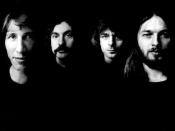
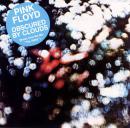

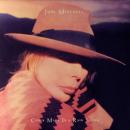
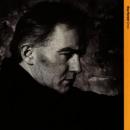

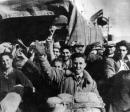
Il primo mattone nel muro che Pink costruisce è il primo evento tragico che segna la sua vita: il padre che parte per la guerra lasciando solo un ricordo.
The first brick in the wall is the first bad experience in Pink's life: the father who goes to war "leaving just a memory".
L'idea di base dell'album e la maggior parte delle canzoni sono di Waters. Nell'album è raccontata la vita di un anti-eroe chiamato Pink (Floyd) che è martellato e maltrattato dalla società fin dai primissimi giorni della sua vita: avendo perso il padre (ucciso ad Anzio durante la Seconda Guerra Mondiale, proprio come il padre di Roger Waters), viene soffocato da una madre iperprotettiva e oppresso a scuola da insegnanti dispotici che cercano di plasmare lui e gli altri allievi in modo da renderli "normali", "adatti" e "utili" alla societa. Pink si rifugia in un mondo di fantasia, costruendo un muro immaginario per isolarsi dalla realtà. Ogni esperienza tragica della sua vita è un nuovo mattone in quel muro.
Pink diventa una rock star e si sposa, ma a causa della sua freddezza, la moglie lo tradisce. Infine arriva al punto di non poter più scappare dal muro che ha costruito, impazzisce al suo interno e tenta il suicidio. Chiama aiuto, ma capisce che è troppo tardi.
Un dottore viene portato dentro per dargli delle droghe che gli permettano di affrontare il prossimo concerto. In preda alle allucinazioni, Pink crede di essere diventato un dittatore nazifascista, finché non riesce a ribellarsi, a riacquistare la sua coscienza e a far "processare" sé stesso dal suo giudice interiore, che gli ordina di abbattere il muro e di aprirsi al mondo esterno.
Nel 1982, a tre anni dalla pubblicazione del disco, Alan Parker dirigerà l'omonimo film "The Wall", trasposizione cinematografica dell'album, che avrà un buon successo di critica e diventerà un cult per tutti i fan del gruppo. L'attore protagonista sarà l'allora semisconosciuto Bob Geldof. Appositamente per il film fu scritta anche una nuova canzone, When The Tigers Broke Free.
Il 21 luglio 1990 Waters portò sul palco una gigantesca rappresentazione di "The Wall" a Berlino, con molti ospiti di prestigio, tra i quali The Band, Van Morrison, Sinéad O'Connor, Cyndi Lauper, The Scorpions, Joni Mitchell, Jerry Hall, e Bryan Adams, per commemorare la caduta del Muro di Berlino.
Tutti i testi di "The Wall" tradotti, da Pink Floyd Sound
*
The album's concept and most of the songs are by Waters. The storyline portrays the fictional life of an anti-hero named Pink Floyd, who is hammered and beaten down by society from the earliest days of his life: having lost his father (killed in Anzio during World War II, as was Waters' own), smothered by his over-protective mother and oppressed at school by tyrannical teachers who tryed to crush him and the other pupils into the "right" shape for society. Pink withdraws into a fantasy world, building an imaginary wall to isolate himself into his world. Every bad experience in his life is a brick in that wall. Pink becomes a rock star and marries, but because of his coldness, his wife cheats on him. Finally, he gets to the point were he can't escape his wall and goes crazy inside it. He calls for help, but he realizes that it is too late. A doctor is brought in to give him drugs to keep him going through the forthcoming show. Hallucinating, Pink believes that he is a Nazi-like fascist, only to have his conscience rebel at this and put himself on trial, his inner judge ordering him to tear down his wall and open himself to the outside world.
A film version of The Wall was released in 1982 entitled Pink Floyd The Wall, directed by Alan Parker and starring Bob Geldof. The screenplay was written by Roger Waters. The film features music from the original album, much of which was re-recorded by the band with additional orchestration, some with minor lyrical and musical changes. It also includes a new song written especially for the film, "When The Tigers Broke Free".
On 21 July 1990 Waters staged a gigantic concert performance of The Wall in Berlin, with guest artists including The Band, Van Morrison, Sinéad O'Connor, Cyndi Lauper, The Scorpions, Joni Mitchell, Jerry Hall, and Bryan Adams, to commemorate the fall of the Berlin Wall.
from en.wikipedia
THE WALL - A complete Analysis
Antiwar songs from "The Wall"
Another Brick In The Wall Part I
The Happiest Days of Our Lives / Another Brick in the Wall Part II
Mother
Goodbye Blue Sky
Run Like Hell
Bring The Boys Back Home
Waiting For The Worms
When The Tigers Broke Free (dal film, non presente nell'album/ from the movie, not included in the original album)
Per un'analisi completa di questa canzone vedi THE WALL - A Complete Analysis